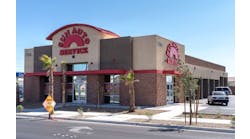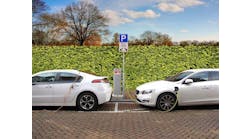Dec.20, 2017—Toyota’s Collaborative Safety Research Center (CSRC) annouced five new research endeavors focused on how drivers use and respond to advances vehicle technologies, including ADAS (advanced driver-assistance systems).
As consumer interest grows and vehicles become more complex, auto repair shops are going to play a huge role in educating customers on ADAS technology, Kaleb Silver noted in a recent Ratchet+Wrench story.
Silver, senior product manager for Hunter Engineering, says the growth of ADAS technologies will provide a major shake-up for the automotive aftermarket, and have a major impact on services in automotive repair shops. Not only will they need to be able to explain ADAS to customers, but technicians must also understand how to repair the ever-changing technology within vehicles.
Launched in May 2017, CSRC Next builds upon the insights gained from the CSRC's first five years to direct $35 million towards safety research into advanced vehicle technologies.
CSRC Next also supports ongoing research programs at the Toyota Research Institute (TRI) and Toyota Connected (TC) to help accelerate the development of automated and connected driving technologies and services.
"The development of advanced vehicle technologies may be progressing faster than the ability of some people to fully understand their capabilities, and it's important to identify how drivers actually understand and use these emerging systems," says Chuck Gulash, director of CSRC. "By working with our partner institutions, and openly sharing our insights with the broader automotive, government, NGO, and technology communities, we believe we can help progress society's acceptance of these new and promising technologies."
The projects are in partnership with five U.S. research institutions: George Mason University, Rockville Institute, University of Washington, University of Michigan Transportation Research Institute, and San Francisco State University. Four of the five projects will focus on the societal acceptance and use of these technologies.
The titles of the next five projects will be the following:
- “A Neuroergonomic Evaluation of Mental Model Development of Future Automated Driving Technologies”
- “A Naturalistic Driving Evaluation of Mental Model Development of Future Automated Driving Technologies”
- “Effectiveness of Short and Long Term Education Methods to Enhance Risk Mitigation and Associated Safety-Related Driving Skills”
- “Guidelines for Development of Evidence-Based Countermeasures for Risky Driving”
- “Effective Stimuli and Behavior for Driving Safety in Automated Driving”


